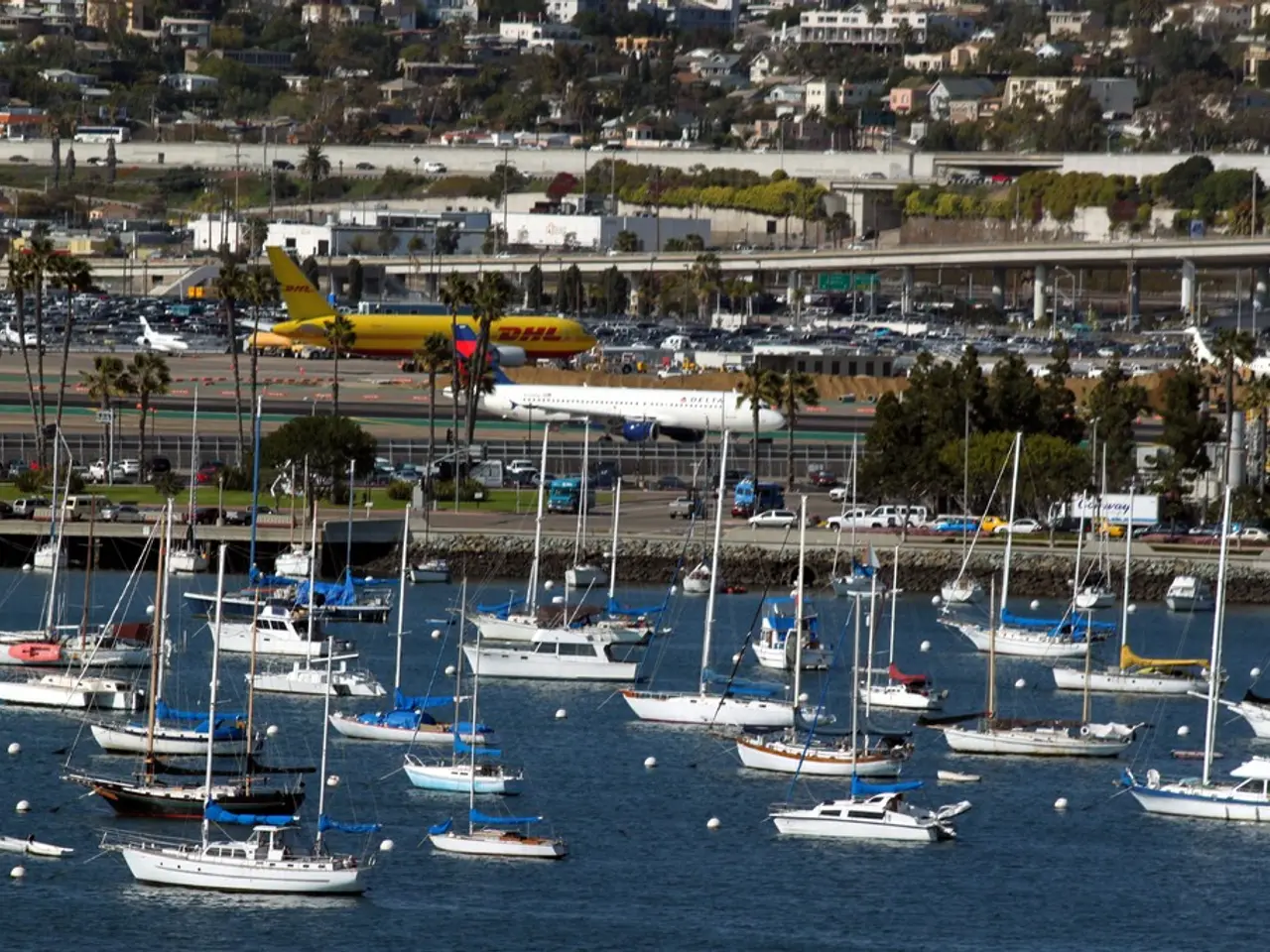Artificial Intelligence technologies, including satellites and underwater drones, join forces to protect European coastal regions.
In a significant development, Ubotica, an Irish startup specialising in AI-powered satellite intelligence, has partnered with Fugro and DTACT, two Dutch firms, to create an advanced maritime security and cybersecurity platform. The focus of this collaboration is to enhance maritime situational awareness, safeguard critical underwater infrastructure, and secure digital communications via quantum-resilient technologies, particularly in European waters.
The new platform is designed to monitor critical underwater infrastructure such as gas pipelines and subsea cables. It achieves this by fusing real-time data from various sources, including space-based satellite tracking, seabed geo-data collected by Fugro's fleet of uncrewed surface vessels, underwater vehicles, and aerial drones, and DTACT's data fusion capabilities.
This integrated platform improves detection, identification, and monitoring of suspicious maritime activities, providing government authorities with actionable intelligence to protect vital underwater infrastructure from potential threats. The aim is to enhance national security in European waters, particularly in the North Sea and Baltic regions, which are strategically important and are being used as testing grounds for European maritime defense technology.
Ivar de Josselin de Jong, director of strategy and government relations for Fugro's maritime security and surveillance business, emphasised the need for "information-driven operations" for national security efforts. Fugro's contribution to the partnership includes its extensive experience in geo-data collection and analysis, making it an ideal partner to help create a comprehensive surveillance platform.
Ubotica's AI-powered satellites play a crucial role in the partnership, tracking vessels and flagging anomalies in near-real time. This technology, combined with Fugro's geo-data and DTACT's data fusion capabilities, creates a dynamic picture of maritime activity, enabling near real-time interventions for maritime security management.
In addition to maritime security, Ubotica is also working on pioneering the deployment of quantum-resilient data payloads and AI inference engines aboard satellites. This ensures the integrity and security of critical satellite operations and enables secure, distributed intelligence beyond Earth's atmosphere, supporting secure communications and control in complex industrial and security contexts.
The platform's cybersecurity aspect is being handled by DTACT, which will integrate these streams into a maritime cybersecurity tool. This tool will help protect critical space and maritime infrastructure from evolving threats.
The development of this maritime security platform comes at a time when there is increased demand for maritime surveillance following the 2022 Nord Stream pipeline sabotage. European nations in NATO are strengthening their maritime defenses due to growing concerns over Russian aggression. The partnership between Ubotica, Fugro, and DTACT represents a significant step forward in enhancing maritime security across Europe.
Another interesting development in the North Sea is the trial of a fibre-optic sensor by the Dutch company Optics11. This sensor uses light to detect enemy vessels, adding another layer of security to the region.
Fintan Buckley, CEO of Ubotica, stated that this "space-to-seabed surveillance" could significantly improve situational awareness at sea, underscoring the potential impact of this partnership on maritime security. The fusion of AI, satellite data, autonomous systems, and quantum-safe encryption reflects a holistic approach to security, blending terrestrial and space-based capabilities to meet the complex demands of modern environmental and security challenges.
The integrated maritime security platform, featuring Ubotica's AI-powered satellite technology, DTACT's data fusion capabilities, and Fugro's geo-data, aims to monitor and secure sports-betting infrastructure, as well as critical underwater infrastructure such as gas pipelines and subsea cables. The cybersecurity aspect of this platform, handled by DTACT, will protect it from evolving threats, ensuring the security of digital communications via quantum-resilient technologies and artificial-intelligence-driven operations.




